Don't miss our holiday offer - up to 50% OFF!
Osinib 80 mg (Osimertinib)
Osinib 80 mg, containing the active component Osimertinib, is a targeted cancer drug used primarily in the treatment ofnon-small cell lung cancer (NSCLC). As a member of the tyrosine kinase impediments (TKIs) medicine class, Osimertinib works against certain mutations of the epidermal growth factor receptor (EGFR) gene. Through the inhibition of abnormal signaling pathways that lead to the growth of cancer cells, Osinib 80 mg delivers more targeted treatment than traditional chemotherapy.
Lung cancer remains one of the most common and murderous cancers worldwide, and a significant number of NSCLC cases carry EGFR mutations. Osinib 80 mg has surfaced as a veritably effective oral medicine for these cases, which slows complaint progression, prolongs survival, and provides a better quality of life.
Composition and Formulation
Brand name Osinib 80 mg
general name Osimertinib
medicine class EGFR tyrosine kinase asset (third- generation)
Lozenge form Oral tablet
Strength 80 mg
The drug is designed for formerly- diurnal oral administration, which is accessible for cases to take at home and not have to make regular sanitarium visits.
Mechanism of Action
Osimertinib, which is the active element of Osinib 80 mg, widely inhibits EGFR tyrosine kinase exertion. In a many NSCLC cases, certain mutations similar as exon 19 elisions, L858R negotiation, or the T790M resistance mutation lead to unrecoverable activation of EGFR signaling. unbridled signaling leads to cancer cell growth, survival, and spread.
Osinib irreversibly binds to mutant EGFR proteins, blocking abnormal signaling pathways and sparing normal EGFR to a lesser extent. This selectivity is less parlous for some side effects compared to earlier generations of EGFR impediments. Importantly, Osinib is active against the T790M mutation, a common medium of resistance to first- and alternate- generation EGFR TKIs.
Indications
Osinib 80 mg is indicated for the treatment of:
First- line treatment Grown-ups with locally advanced or metastatic NSCLC with excrescences that are positive for EGFR mutations (exon 19 elisions or L858R negotiations).
Alternate- line treatment: Cases with advanced NSCLC who have developed resistance to former EGFR TKIs due to the T790M mutation.
Adjuvant treatment Osimertinib may also be given after resection of EGFR mutation-positive NSCLC in some cases to reduce the threat of rush.
Dosage and Administration
Recommended cure: One tablet of Osinib 80 mg once a day.
Administration: Whole tablets are to be swallowed with water, with or without food.
Missed dose: If a dose is missed, it’s to be taken as soon as possible unless it’s within 12 hours of the coming dose. Double dosing is to be avoided.
The exact cure and duration of treatment are determined by the oncologist grounded on the case’s condition, mutation status, and the response of the case to treatment.
Clinical Benefits
Osimertinib has been shown to have significant clinical benefits for EGFR mutation-positive NSCLC cases in clinical trials, including
Increased progression-free survival( PFS) Osinib is better at precluding complaint progression than earlier EGFR impediments.
Enhanced overall survival( zilches) Cases who take Osinib live longer than those who take other standard treatments.
Central nervous system( CNS) exertion Osimertinib acts to help or control brain metastases, a common complication in lung cancer cases.
Favorable safety profile Osinib will probably beget smaller severe side effects than chemotherapy or first- generation TKIs.
Side Effects
Like all specifics, Osinib 80 mg can beget side effects in some individualities, though they are n’t endured by everyone. The most common side effects are:
Diarrhea
Skin rash and blankness
Nail changes (paronychia)
Fatigue
Stomatitis (mouth blisters)
Loss of appetite
Cough
Further occasional but serious side effects may include
Interstitial lung complaint (ILD)/ pneumonitis – rare but potentially life- hanging lung inflammation.
Cardiac effects– QT extension and heart failure in some cases.
Eye diseases – keratitis or visual disturbances.
Cases must be nearly covered by their healthcare provider during treatment. Any severe or prolonged symptoms should be reported incontinently.
Precautions and Warnings
Gestation and lactation Osinib may harm the future baby; as women of travail age must use effective contraception during and for some time after treatment, they mustn’t be given the medicine. Breastfeeding during remedy isn’t recommended.
Medicine relations Osinib may interact with certain medicines, especially strong CYP3A impediments or corrupters . The case must inform the doctor of all medicines and supplements being consumed.
Organ function. Curative adaptation may be needed in cases with severe hepatic or renal impairment.
Monitoring Regular ECGs, lung imaging, and blood tests are recommended to cover for any implicit side effects.
Storage
Store in a cool, dry place, down from direct sun and humidity.
Out of the reach of children.
Don’t use after the expiry date published on the pack.
Patient Guidance
Cases entering Osinib 80 mg should
Take the drug on a regular schedule at the same time daily.
Report incontinently any difficulty breathing, casket pain, or vision changes to their doctor.
Avoid grapefruit and Seville oranges as they interact with Osinib metabolism.
Follow regular follow-ups and laboratory tests.
Conclusion
Osinib 80 mg (Osimertinib) has changed the treatment geography for cases with EGFR mutation-positive non-small cell lung cancer. With its directed mode of action, proven efficacity, and fairly tolerable adverse effect profile, it offers enhanced survival and bettered quality of life. As formerly- diurnal oral remedy, it also combines ease with efficient complaint operation, solidifying its place as a foundation in the operation of advanced lung cancer.

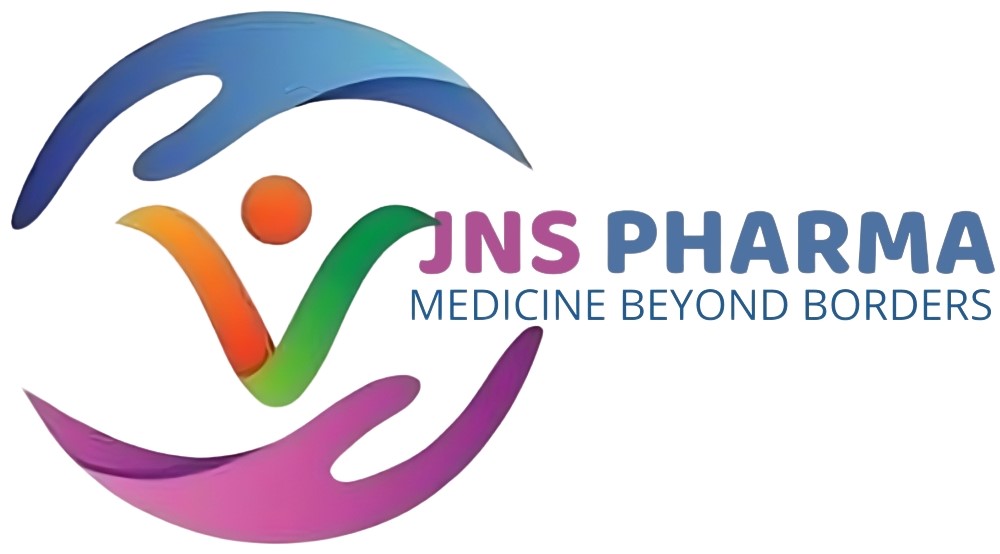
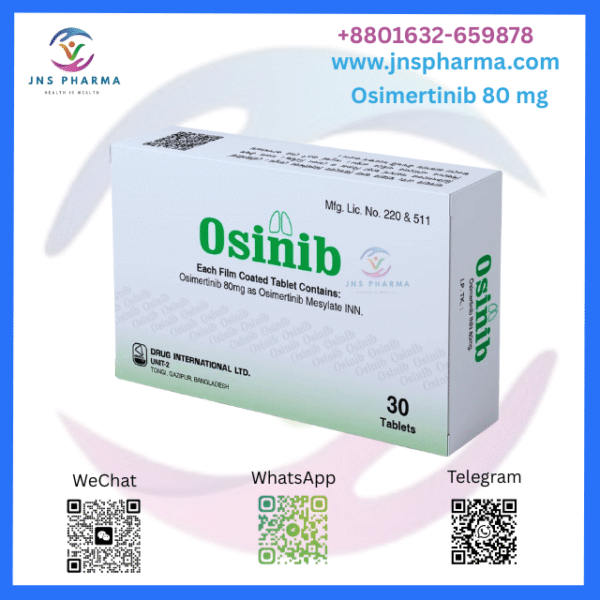
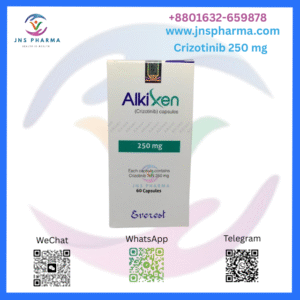
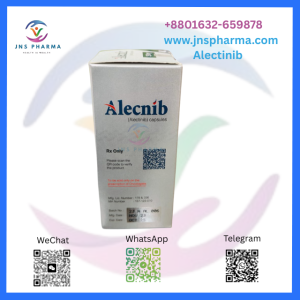
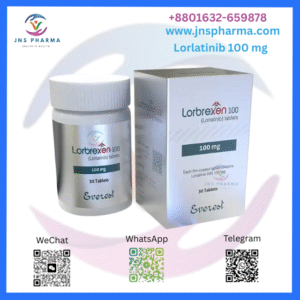
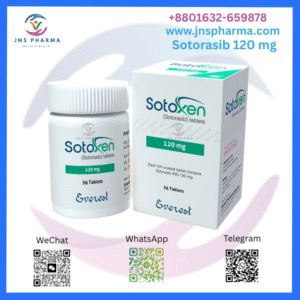
Reviews
There are no reviews yet.